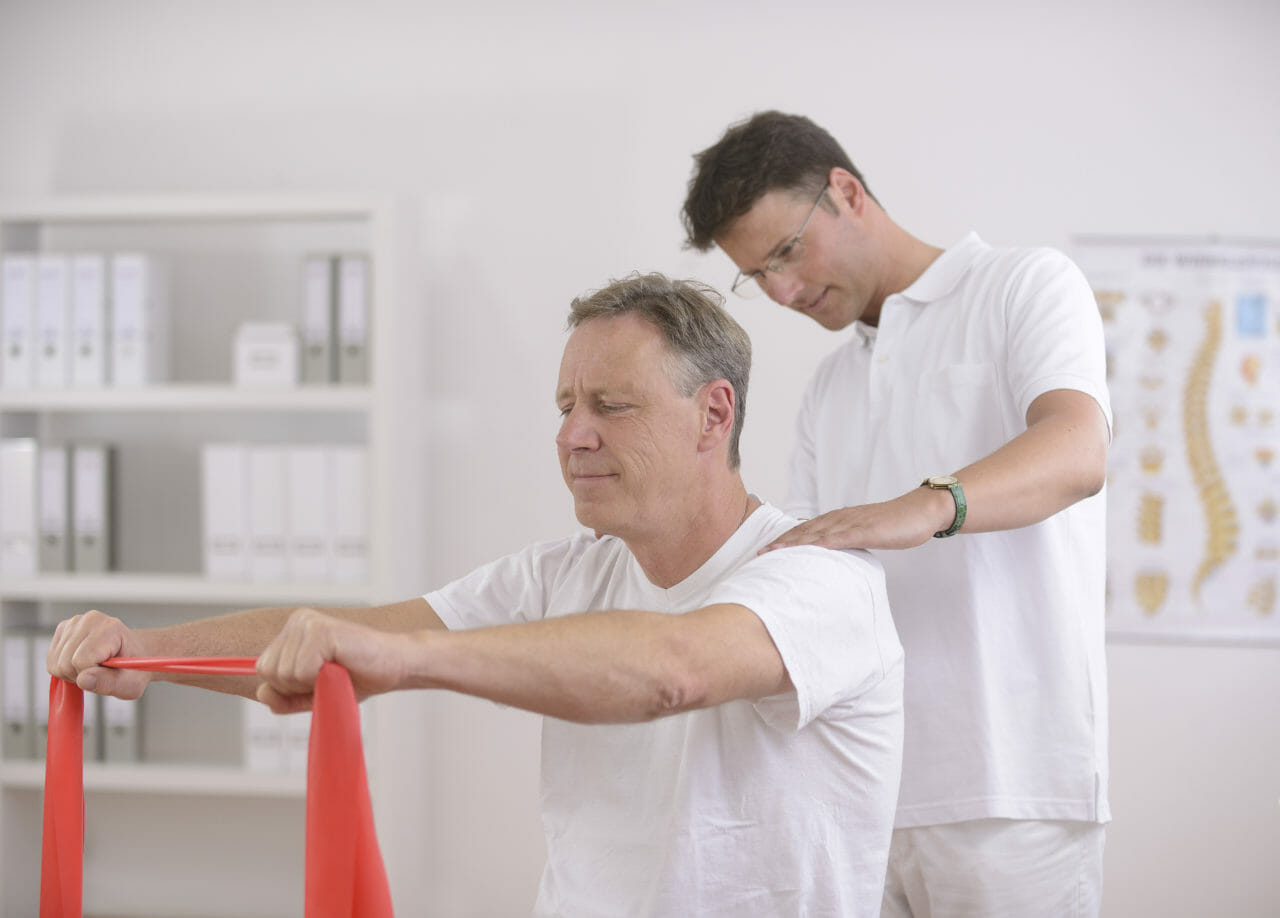Whether it’s been from our parents in our earlier years or from the many recommendations about our workstations today, it feels like we’ve always been told to “sit up straight.” A great deal of fuss has been made about posture and trying to keep the body properly aligned at all times, but just how important is it, really? It turns out that using good posture is extremely important, as practicing bad postural positions in the long term can lead to a number of problems, one of which is upper crossed syndrome (UCS). This painful condition results from a muscle deformity in the upper body, but our New York City physical therapists can effectively address it with advice and a specific set of exercises.
UCS refers to a particular way in which the muscle groups of the neck, shoulders and chest become arranged. Most cases of UCS develop from using poor posture regularly for a long period of time. The posture that is most closely associated with UCS is standing or sitting with the head pushed forward rather than aligned over the spine, which is a popular position that people use when they are watching TV, reading, riding a bike, driving or looking down at a smartphone, laptop or computer.
Using this poor posture for a while leads to several changes in the muscles of upper body. It primarily affects the upper trapezius and levator scapula muscles, which are the back muscles of the shoulders and neck. In the first stage, these muscles become extremely strained and overactive, and then, the muscles in the front of the chest—major and minor pectorals—become light and shortened. When these muscles are overactive, the surrounding counter muscles in the area are underused and become weak. As a result, the overactive and underactive muscles can overlap, which causes an “X-shape” to develop.
Patients with UCS display rounded shoulders and a neck that is bent forward because of the improper configuration of the muscles. The deformed muscles put strain on the surrounding joints, bones, muscles and tendons, which can cause a variety of symptoms. These include neck pain, headaches, weakness in the front of the neck, strain in back of the neck, pain in the upper back and shoulders, jaw pain and fatigue.
How our New York City physical therapists typically address UCS
The best way to treat UCS is by making lasting changes to your posture and following a specific set of exercises designed for this muscle deformity. Some patients with UCS may feel lots of discomfort when stretching, but not being physically active can actually lead to additional problems like soreness and stiffness. This is why it’s crucial to become engaged in exercises that will improve your condition. Our New York City physical therapists typically manage UCS patients with the following:
- Posture advice and education: since poor posture is the main culprit of UCS, one of the main components of treatment will be training you to change your posture for the better in all the positions you hold throughout the day
- Stretching exercises: focuses on improving flexibility of the muscles in the upper body that have become shortened or tightened
- Strengthening exercises: targets the muscles of the neck and upper back that have become weakened by UCS
- Manual therapy: one of the most effective treatments for UCS, in which the therapist uses their hands to relieve pain and stiffness in order to engage better movement of the body
Fortunately, UCS is not considered a serious condition unless it progresses into later stages without treatment, at which point it can become far more difficult to treat. This is why our New York City physical therapists strongly recommend seeing us at the first signs of UCS, so that it can be properly managed before it progresses further. Contact Dynamic Sports Physical Therapy at 212-317-8303 to schedule an appointment today, or click here for more information on UCS.

